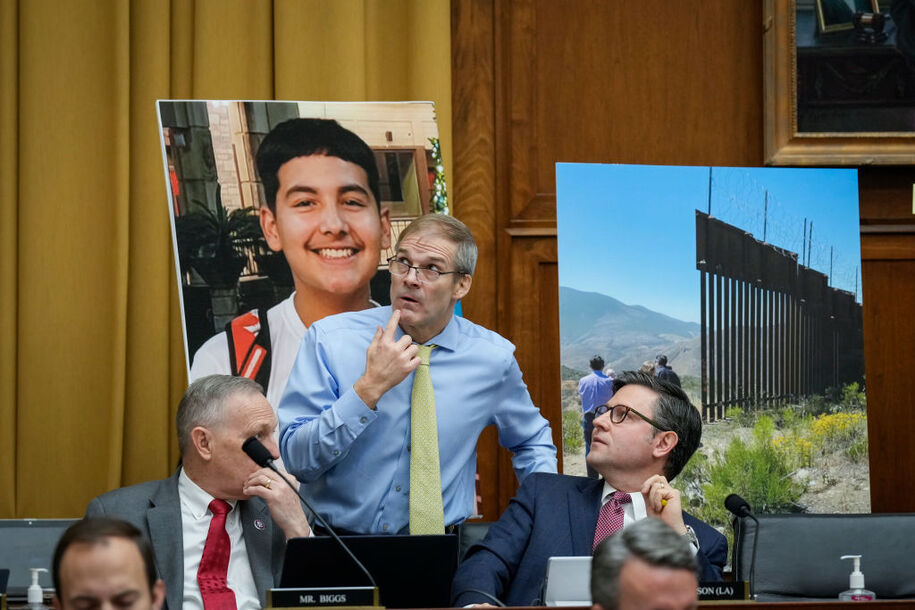Republicans are so intent on creating more chaos at the border that they’re risking another partial government shutdown. There’s agreement on five of the six funding bills that need to pass by Friday in order to avert a shutdown, but the House GOP’s refusal to adequately fund the Department of Homeland Security threatens everything.
“Republicans want to underfund DHS, which makes the border less secure and the country less safe,” a White House official told Politico Sunday. Republicans are trying to “sow chaos on the border ahead of November,” the official said. That definitely seems to be the strategy.
House Republicans pushed for a continuing resolution for the rest of the year for Homeland Security, which would have effectively been a cut to the department. It would continue funding at 2023 levels, and not account for inflation. Democrats offered an additional $1.56 billion in additional funding to secure the border, according to Politico, but Republicans rejected that offer.
Top-level White House staff reportedly “made it clear” to House Speaker Mike Johnson that his proposed funding levels would cripple border security.
“This means less agents to secure our border, less officers to protect the traveling public, less people to go after drug traffickers than today, less detention beds than today, as well as diminished capacity to respond to disasters, cybersecurity incidents and national security threats,” one official told Politico.
While the border stalemate continues, the odds of a shutdown increase due to time constraints.
The funding bill should have been released Sunday to get it turned around in time because both congressional chambers are out today, and House rules require 72 hours to consider legislation before it comes to the floor. Had legislators met the Sunday deadline, the bill would have been considered Thursday—the day before the shutdown deadline—with the Senate having just one day to turn it around.
The funding deal wasn’t released on Sunday because of this dispute. It’s looking unlikely that it will be released on Monday, which means that a partial shutdown this weekend is a very real possibility.
A partial shutdown would be resolved relatively quickly, but even a short-term shutdown costs the government. Agencies have to make contingency plans, deciding which employees are essential and which have to be furloughed. It means lost fees and revenue, as well as administrative costs to both shut down and start government agencies back up, and back pay for furloughed federal employees.
A shutdown would mean about two-thirds of IRS agents would be furloughed—in the middle of tax season. It would mean that 1.3 million active duty troops would have to work without pay, along with essential airport security staff (which could cause nationwide flight delays, like in 2019). During the 2019 shutdown, nearly 8% of TSA staff participated in sick-outs to protest having to work without pay.
As usual, House Republicans are willing to play chicken with government funding. Their game plan is clear: keep the one issue they have public support on alive by not funding border security. After all, they killed the bipartisan border security bill because they don’t actually want better border security. They want an election issue to campaign on.
RELATED STORIES:
Republicans got exactly what they wanted. Now they’re trying to kill it
News flash for House hard-liners: Shutdowns cost billions
Republicans would rather campaign on the border crisis than solve it
This poll confirms it: Immigration is all Republicans have left
The ripple effects of the Dobbs decision are impacting not only the right to an abortion but also abortion funding, IVF, and even recreational sex. Joining us on this week’s episode of “The Downballot” is Grace Panetta, a political reporter at The 19th who has closely covered the electoral consequences of this ever-widening set of issues. Panetta highlights key races this year where reproductive rights will take center stage, including ballot initiatives in multiple states, efforts to repeal bans on public funding of abortions, and an upcoming special election in Alabama, the state that just thrust IVF into the limelight.
Campaign Action

